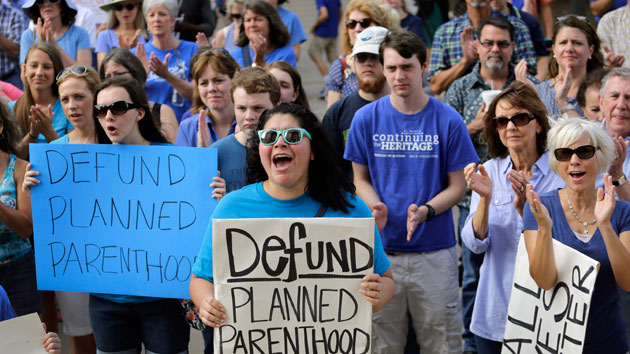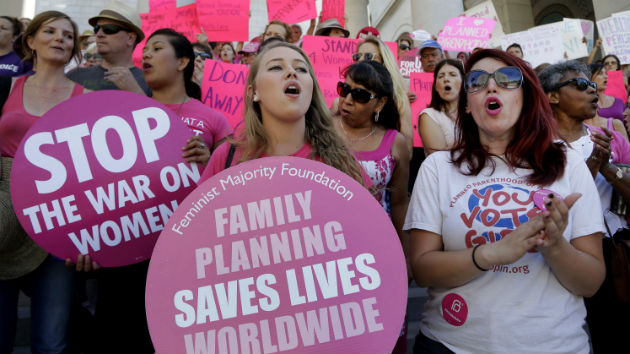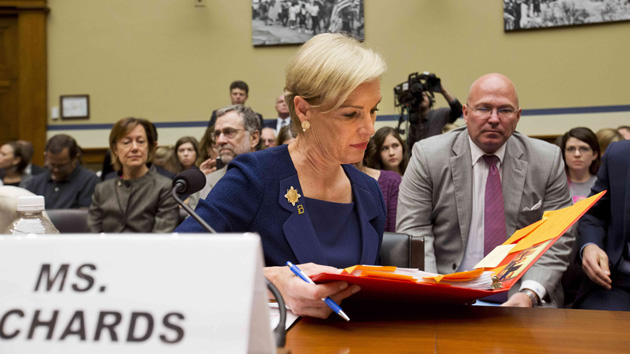Since July, an anti-abortion group’s deceptively edited videos targeting Planned Parenthood for allegedly profiting off sales of fetal tissue appear to have prompted at least four arson attacks on Planned Parenthood clinics. And even though the allegations were bogus, the vilification of the women’s health organization has done additional damage: Violent threats and a political chill in the wake of the videos have begun to undermine potentially life-saving research on diseases including diabetes, Parkinson’s, and Alzheimer’s. Fetal-tissue donation programs essential to such research have been shut down, supplies of the tissue to labs have dwindled, and legislation is brewing in multiple states that could hinder cutting-edge scientific studies.
“It’s anti-progress,” says Gail Robertson, a veteran researcher at the University of Wisconsin-Madison who uses cell lines derived from fetal tissue to study heart disease, including sudden cardiac death, the largest cause of natural death in the United States. “We’re in a fight for the future of cures to the diseases that will affect us all.”
Since the 1990s, Robertson and her colleagues have developed pharmaceutical technology using cells from embryonic tissue known as the HEK line—research credited with saving lives from fatal heart disease. “If lawmakers were to say, ‘You can’t use HEK cells because they come from fetal tissue,’ it would be impossible to continue my work in my lab,” Robertson says. “It’s something we use every single day.”
According to Theresa Naluai-Cecchini, a scientist at Birth Defects Research Lab at the University of Washington in Seattle, the political controversy has hurt the work at her lab, which is funded by the National Institutes of Health and also supplies other scientific researchers with fetal tissue. “We are in the last year of funding, and if we are unable to supply tissue to the research community we would have to close,” she says. “We may be able to obtain an extension, but the climate in DC does not look favorable in an election cycle.”
Naluai-Cecchini told the Seattle Times that over the past year her lab has distributed 1,109 tissue samples to more than 60 researchers elsewhere who are working on solutions for spinal cord injuries, eye disease, cancer, and HIV. That supply line relies on about two to three samples per day coming into Birth Defects Research Lab, which has long been the lab’s norm. But over the past month, Naluai-Cecchini told Mother Jones, only five specimens in total have come in. If that trend continues, she says, “promising research would stop until a commercial alternative is found. The cost of research would increase dramatically, and new findings would take considerably longer.”
Before the videos were released by anti-abortion activist David Daleiden and his group, the Center for Medical Progress, a total of six Planned Parenthood affiliates in Washington state and California had tissue donation programs. Three of the programs have since been shut down, Liz Clark, a spokeswoman for Planned Parenthood Federation of America, told Mother Jones. One clinic discontinued donations to labs after the videos prompted personal threats against some of its employees, according to Clark. Two other programs lost their contracts with biomedical companies due to the controversy.
One of those companies, StemExpress, a tissue provider in Placerville, California, cut ties in August following the congressional inquiry into Planned Parenthood—and after personal threats against the company’s CEO, Cate Dyer. According to a complaint filed in a Northern California district court by the National Abortion Federation, an anonymous commenter threatened Dyer, calling her a “death-profiteer” and offering a $10,000 bounty on her head. “The CEO of StemExpress should be hung by the neck using piano wire and propped up on the lawn in front of the building with a note attached,” the commenter said, also posting Dyer’s home address. The threats were posted on Fox Nation by someone using the handle “Joseywhales,” according to the Huffington Post.
The legal complaint was filed on July 31; on August 15, StemExpress released a statement: “We value our various partnerships but, due to the increased questions that have arisen over the past few weeks, we feel it prudent to terminate activities with Planned Parenthood.”
The legal complaint (read it here) states that Planned Parenthood’s medical director, Deborah Nucatola, who appeared in the first of 10 videos released by the anti-abortion group, received similar death threats. Mother Jones contacted additional researchers who work with fetal tissue, but they declined to speak on the record about threats, fearing for their safety.
Daleiden and the Center for Medical Progress did not respond to inquiries from Mother Jones about the fallout from their videos.
In Wisconsin, where scientists at the University of Wisconsin-Madison in the 1990s pioneered research with human embryonic stem cells‚ lawmakers are now considering a ban on the use of fetal tissue that could hinder today’s cutting-edge research. That includes ongoing efforts at the university to find new antibiotics as existing ones grow ineffective. The bill’s lead sponsor, Republican Rep. Andre Jacque, originally proposed legislation that would make it a felony to sell, donate, or experiment with fetal tissue in any capacity.
“My immediate reaction was, ‘Oh, I’m going to have to move the lab’,” says Laura Kiessling, one of the researchers in Madison. “Because you can’t stop—you really want to do the research.”
Jacque has since revised the bill to allow for the use of cell lines that were obtained before January 1 this year. But the latest version would still outlaw the scientific use of fetal tissue obtained after that date, potentially halting progress on treatments for spinal injuries and Parkinson’s disease, according to Kiessling. “I think what’s upsetting is that the logic of the legislation is not clear,” she says.
Robertson adds that the legislation doesn’t allow for scientific advancement down the road. “The HEK line was so critical,” she says, “but we don’t know what [new lines] will be critical in the future.”
Thirty-eight states explicitly permit fetal-tissue donation for research, while six states currently ban such research, including Ohio, which is now also moving to make reimbursement for fetal-tissue samples illegal. In mid-October, Planned Parenthood announced that it would no longer accept reimbursements for its fetal-tissue donations in order to “remove beyond the shadow of a doubt the ludicrous idea that Planned Parenthood has any financial interest in fetal tissue donation.”
Now, lawmakers in nine states are proposing bans similar to the one on the table in Wisconsin, and more are likely to follow, says Elizabeth Nash, a state policy expert at the Guttmacher Institute, which studies sexual and reproductive health. Americans United for Life, a prominent anti-abortion group, has included a fetal-tissue ban in its model legislation for 2016, and Nash anticipates that AUL’s language will surface in a wave of legislation proposed in 2016 in light of the group’s past collaborations with conservative lawmakers. (In 2010, for example, AUL’s Federal Abortion Mandate Opt-Out Act was used as a model in Tennessee and Louisiana for opting out of insurance coverage for abortion in any circumstance.)
At the federal level, Republican Rep. Jim Sensenbrenner of Wisconsin has sponsored a bill expected to be taken up at the beginning of next year that would outlaw fetal-tissue research nationwide.
“I would ask the public to reflect on family members—people you care about who have been saved by this technology,” Robertson says. “Think about the unanticipated implications of supporting these kinds of legislation.”

















